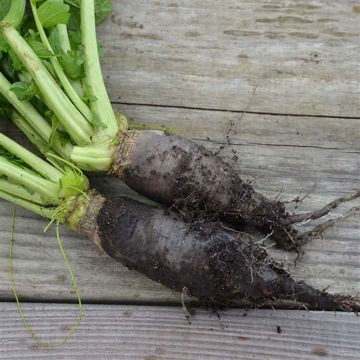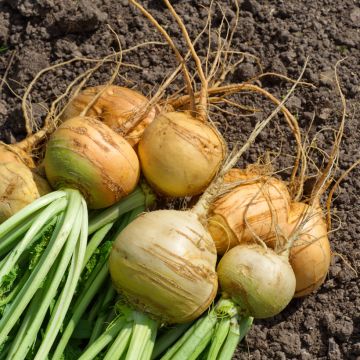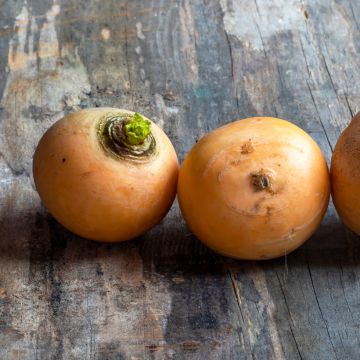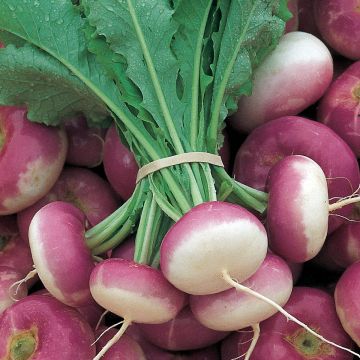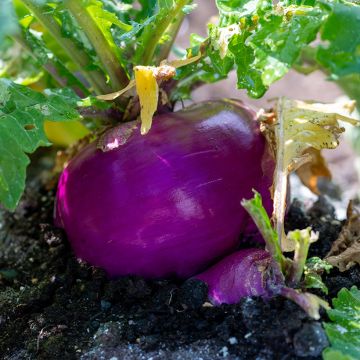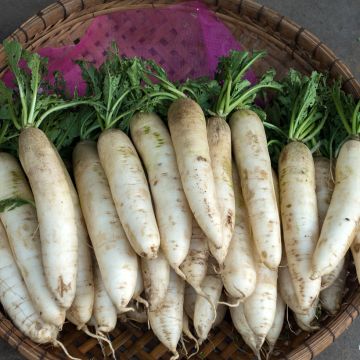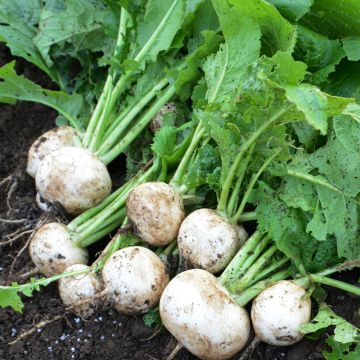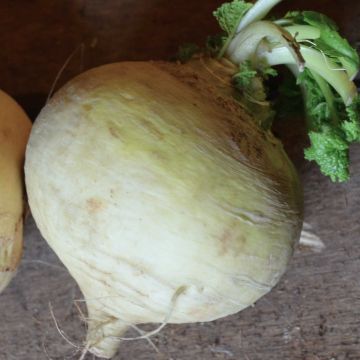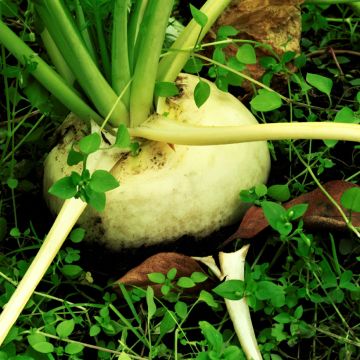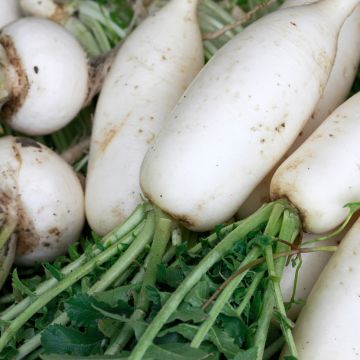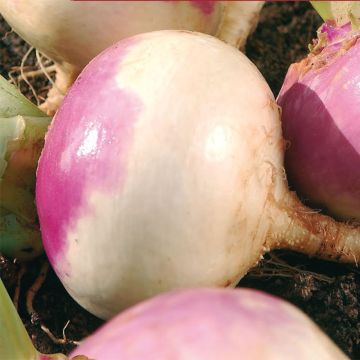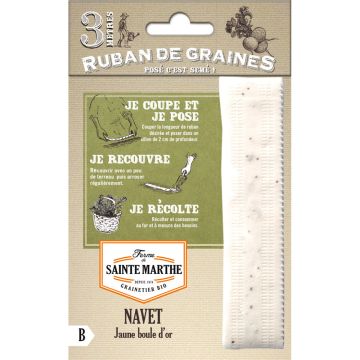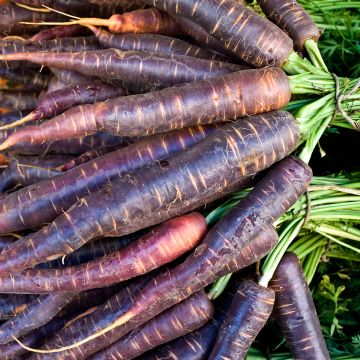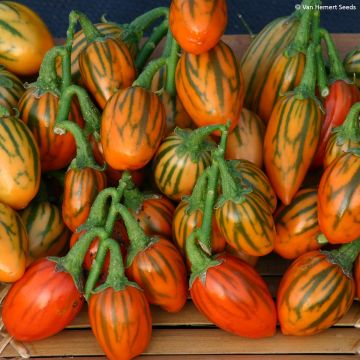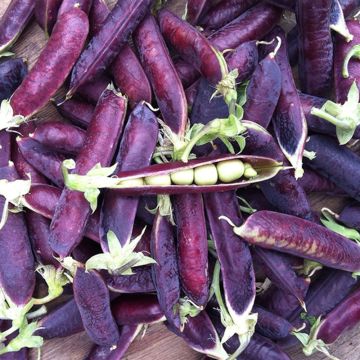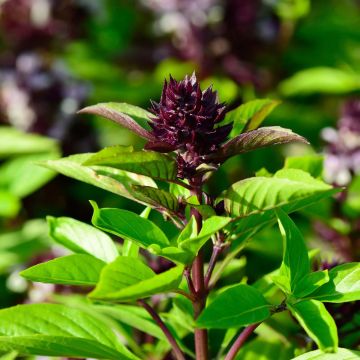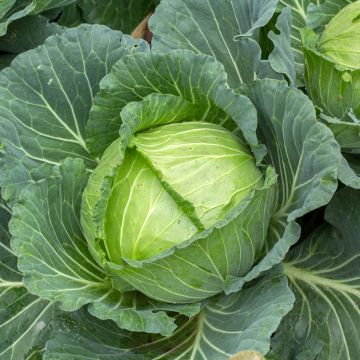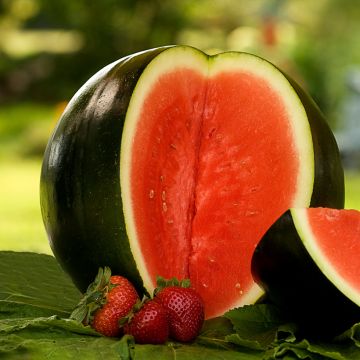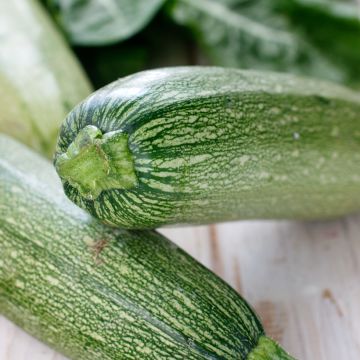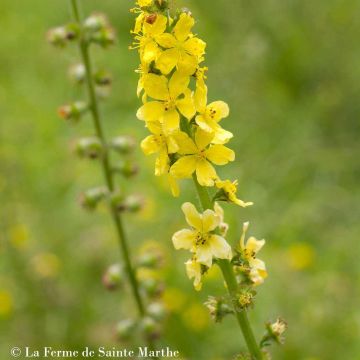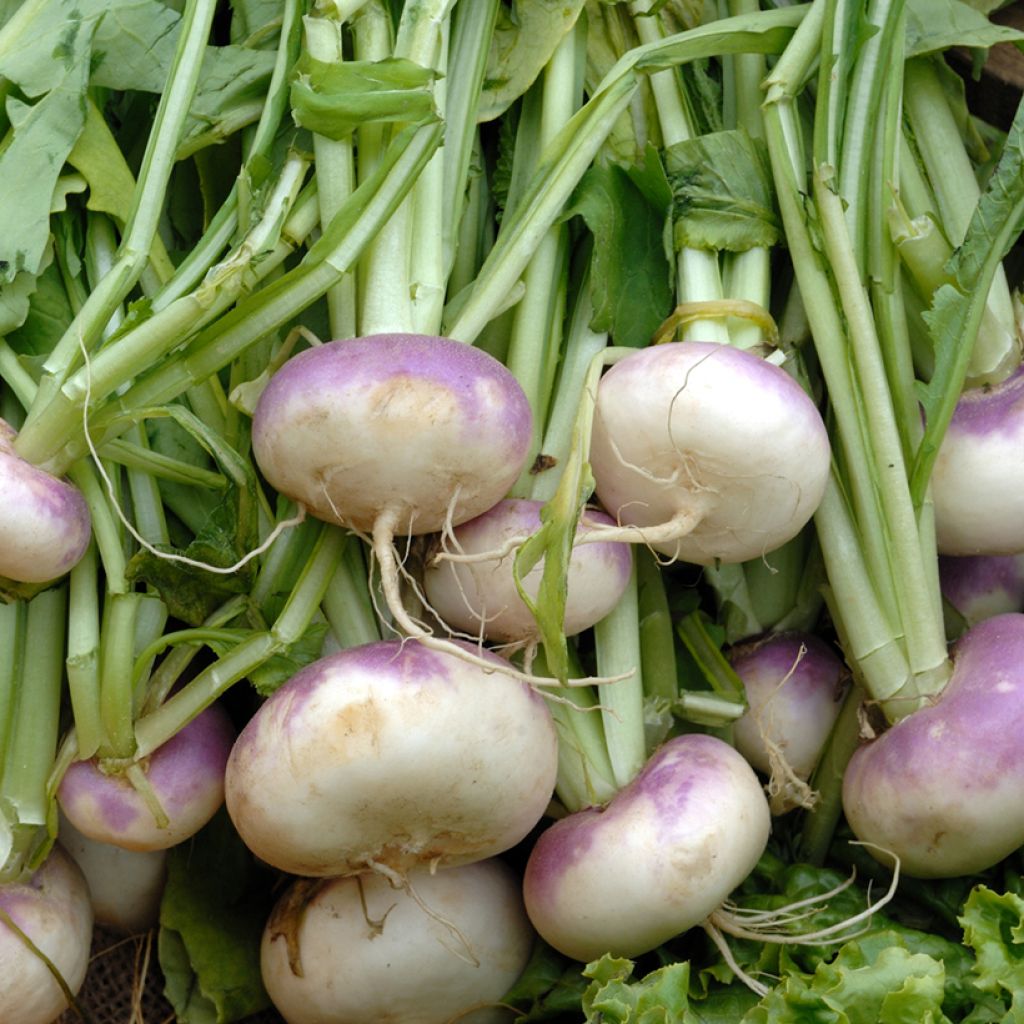

Turnip Early Flat Red - Vilmorin Seeds
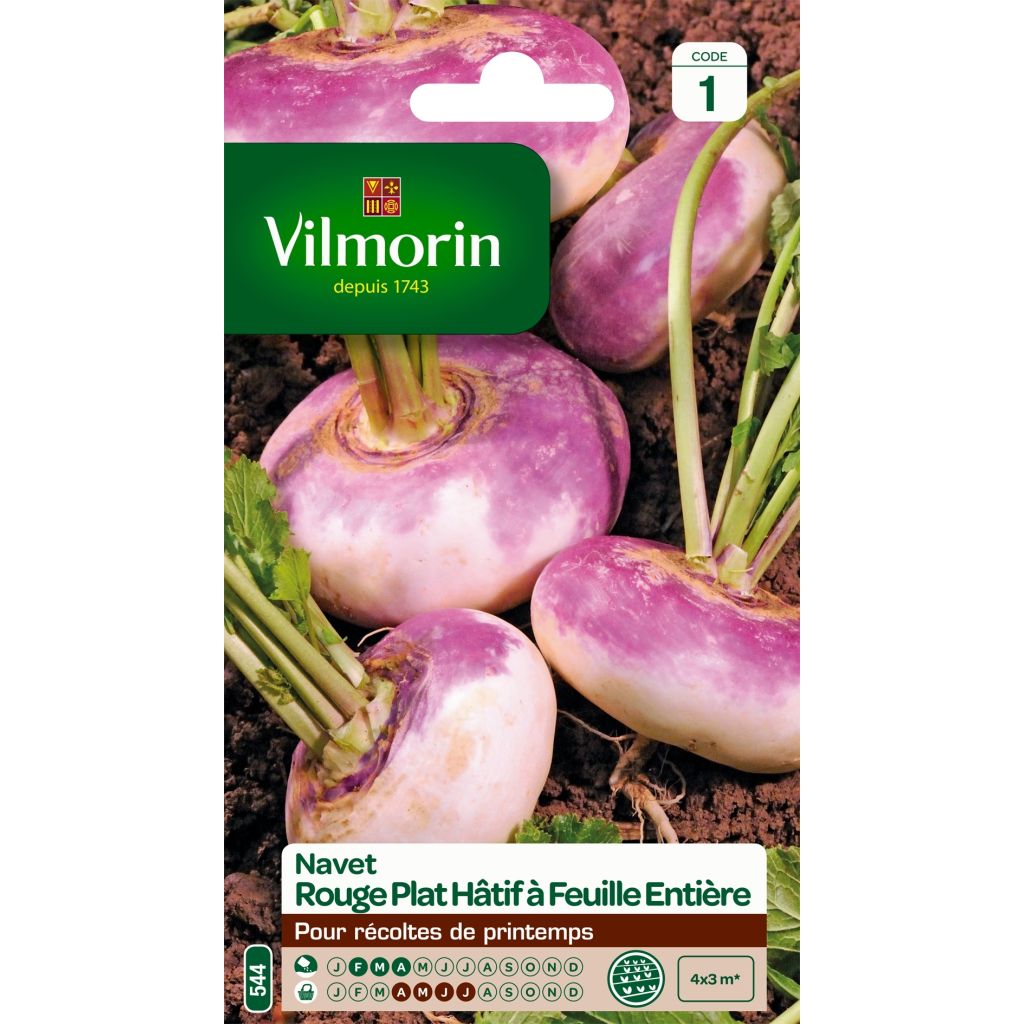

Turnip Early Flat Red - Vilmorin Seeds
Turnip Early Flat Red - Vilmorin Seeds
Brassica rapa Hâtif à Feuille Entière
Special offer!
Receive a €20 voucher for any order over €90 (excluding delivery costs, credit notes, and plastic-free options)!
1- Add your favorite plants to your cart.
2- Once you have reached €90, confirm your order (you can even choose the delivery date!).
3- As soon as your order is shipped, you will receive an email containing your voucher code, valid for 3 months (90 days).
Your voucher is unique and can only be used once, for any order with a minimum value of €20, excluding delivery costs.
Can be combined with other current offers, non-divisible and non-refundable.
Why not try an alternative variety in stock?
View all →This plant carries a 6 months recovery warranty
More information
We guarantee the quality of our plants for a full growing cycle, and will replace at our expense any plant that fails to recover under normal climatic and planting conditions.
Description
An early-maturing variety that is ideal for spring harvests. It produces flattened globe-shaped roots with a purplish-pink top and a white base. Its white flesh is firm and sweet. Sow from February to April and harvest from April to July.
The turnip is a root vegetable commonly grown in Northern Europe since ancient times. It is generally eaten cooked in soups, stews and casseroles or added to gratin or mash. Early turnips do not need to be peeled and can be eaten raw, grated and mixed in with other vegetables. Young turnip greens are also edible. Turnip has diuretic and antioxidant properties. It contains vitamins A, B3, B5, B6 and C and minerals such as calcium, iron, copper and magnesium.
There are many different types of turnip of choose from. The root comes in an array of shapes (long, half-long, globe-shaped or flattened) and colours (white, yellow, pink or purple). Grow several varieties for year-round harvests! For something a little different, why not try rutabagas (swedes)? They result from a cross between a turnip and a wild cabbage and are equally tasty and easy to grow.
Harvesting: Turnips are usually harvested two months after sowing. Spring-summer turnips are harvested as and when required from May to July. Autumn-winter storage varieties are harvested from October until the first frosts. To harvest, lift with a garden fork and gently pull up the roots by the base of the leaves.
Storage: Let the turnip roots dry for a few hours on the ground and cut off the greens just above the crown. Turnips will keep for several months in a box or container filled with sand or straw, in a cool dark room (cellar or garage).
Good to know: Planting fennel next to turnips helps repel flea beetles and root maggots, two major pests that feed on turnip and rutabaga plants. Ideally, cover your crops with fine insect netting or row covers. Mulching with grass clippings or dead leaves will help keep the soil moist whilst limiting weed growth.
Even if the vegetable garden is first and foremost a place for growing great quality veg, it’s always a good idea to leave a bit of room for flowers. Growing flowers alongside your vegetable plants will make your general gardening experience more enjoyable and is a great way to attract pollinators and repel garden pests! Flowers such as gaillardia, marigolds, zinnias, cosmos or nasturtiums can be sown in and around the rows of vegetables. Herbs such as dill can be very useful also. Bear in mind that some companion plants self-seed easily and can be a bit invasive (borage, chives, lemon balm etc.)
Report an error about the product description
Harvest
Plant habit
Foliage
Botanical data
Brassica
rapa
Hâtif à Feuille Entière
Brassicaceae
Cultivar or hybrid
Biennial
Other Turnip seeds
View all →Planting and care
Sowing:
Soil should be carefully loosened and levelled before sowing. Turnips grow best in slightly acidic, light, cool, rich soil. They are sensitive to frost, drought and too much sun. Rotate your crops and wait 3 to 4 years before growing turnips on the same plot.
Sow from August to September in furrows, 1 cm deep and 30-40 cm apart. Sow the seeds sparingly, one every 5 cm, and cover with ½ cm of fine soil or sowing mix. Gently firm down and water. Make sure to keep the soil moist until germination.
Care:
When the plants have at least 2 true leaves, thin them out by keeping one plant every 10-12 cm. Discard the extra seedlings as turnips do not transplant well. Hoe and water regularly (once or twice a week during the summer months when using mulch, slightly less often during the autumn).
Seedlings
Care
Intended location
This item has not been reviewed yet - be the first to leave a review about it.
Similar products
Haven't found what you were looking for?
Hardiness is the lowest winter temperature a plant can endure without suffering serious damage or even dying. However, hardiness is affected by location (a sheltered area, such as a patio), protection (winter cover) and soil type (hardiness is improved by well-drained soil).

Photo Sharing Terms & Conditions
In order to encourage gardeners to interact and share their experiences, Promesse de fleurs offers various media enabling content to be uploaded onto its Site - in particular via the ‘Photo sharing’ module.
The User agrees to refrain from:
- Posting any content that is illegal, prejudicial, insulting, racist, inciteful to hatred, revisionist, contrary to public decency, that infringes on privacy or on the privacy rights of third parties, in particular the publicity rights of persons and goods, intellectual property rights, or the right to privacy.
- Submitting content on behalf of a third party;
- Impersonate the identity of a third party and/or publish any personal information about a third party;
In general, the User undertakes to refrain from any unethical behaviour.
All Content (in particular text, comments, files, images, photos, videos, creative works, etc.), which may be subject to property or intellectual property rights, image or other private rights, shall remain the property of the User, subject to the limited rights granted by the terms of the licence granted by Promesse de fleurs as stated below. Users are at liberty to publish or not to publish such Content on the Site, notably via the ‘Photo Sharing’ facility, and accept that this Content shall be made public and freely accessible, notably on the Internet.
Users further acknowledge, undertake to have ,and guarantee that they hold all necessary rights and permissions to publish such material on the Site, in particular with regard to the legislation in force pertaining to any privacy, property, intellectual property, image, or contractual rights, or rights of any other nature. By publishing such Content on the Site, Users acknowledge accepting full liability as publishers of the Content within the meaning of the law, and grant Promesse de fleurs, free of charge, an inclusive, worldwide licence for the said Content for the entire duration of its publication, including all reproduction, representation, up/downloading, displaying, performing, transmission, and storage rights.
Users also grant permission for their name to be linked to the Content and accept that this link may not always be made available.
By engaging in posting material, Users consent to their Content becoming automatically accessible on the Internet, in particular on other sites and/or blogs and/or web pages of the Promesse de fleurs site, including in particular social pages and the Promesse de fleurs catalogue.
Users may secure the removal of entrusted content free of charge by issuing a simple request via our contact form.
The flowering period indicated on our website applies to countries and regions located in USDA zone 8 (France, the United Kingdom, Ireland, the Netherlands, etc.)
It will vary according to where you live:
- In zones 9 to 10 (Italy, Spain, Greece, etc.), flowering will occur about 2 to 4 weeks earlier.
- In zones 6 to 7 (Germany, Poland, Slovenia, and lower mountainous regions), flowering will be delayed by 2 to 3 weeks.
- In zone 5 (Central Europe, Scandinavia), blooming will be delayed by 3 to 5 weeks.
In temperate climates, pruning of spring-flowering shrubs (forsythia, spireas, etc.) should be done just after flowering.
Pruning of summer-flowering shrubs (Indian Lilac, Perovskia, etc.) can be done in winter or spring.
In cold regions as well as with frost-sensitive plants, avoid pruning too early when severe frosts may still occur.
The planting period indicated on our website applies to countries and regions located in USDA zone 8 (France, United Kingdom, Ireland, Netherlands).
It will vary according to where you live:
- In Mediterranean zones (Marseille, Madrid, Milan, etc.), autumn and winter are the best planting periods.
- In continental zones (Strasbourg, Munich, Vienna, etc.), delay planting by 2 to 3 weeks in spring and bring it forward by 2 to 4 weeks in autumn.
- In mountainous regions (the Alps, Pyrenees, Carpathians, etc.), it is best to plant in late spring (May-June) or late summer (August-September).
The harvesting period indicated on our website applies to countries and regions in USDA zone 8 (France, England, Ireland, the Netherlands).
In colder areas (Scandinavia, Poland, Austria...) fruit and vegetable harvests are likely to be delayed by 3-4 weeks.
In warmer areas (Italy, Spain, Greece, etc.), harvesting will probably take place earlier, depending on weather conditions.
The sowing periods indicated on our website apply to countries and regions within USDA Zone 8 (France, UK, Ireland, Netherlands).
In colder areas (Scandinavia, Poland, Austria...), delay any outdoor sowing by 3-4 weeks, or sow under glass.
In warmer climes (Italy, Spain, Greece, etc.), bring outdoor sowing forward by a few weeks.






























